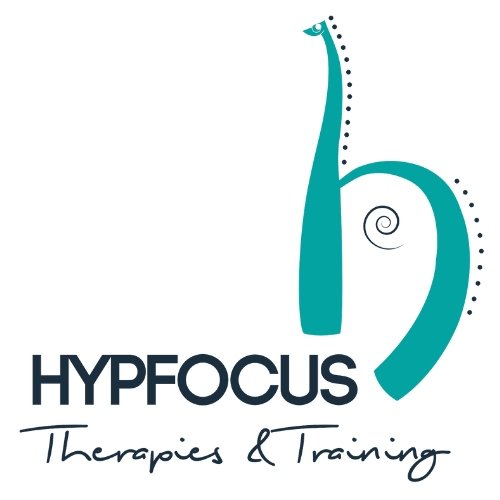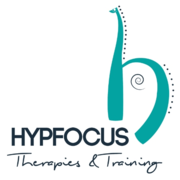Make Public Speaking Easy: Use These Simple Tips
Introduction
For many people, the thought of speaking in front of a group brings immediate tension. Sweaty hands, a racing heart, and a shaky voice can all show up before a single word is even spoken. Whether it’s a work presentation, a wedding speech, or simply voicing an opinion in a meeting, public speaking can feel like a mountain to climb. What makes it harder is how common this fear is, yet how quiet most people are about it.
The good news is that you don’t need to become a polished orator overnight. Sometimes, the smallest changes make the biggest difference. A few shifts in how you prepare, how you speak to yourself, or how you practise can help ease that discomfort. And if anxiety is behind your fear of speaking, hypnotherapy can be a useful tool to help you work through the thoughts and feelings that get in the way.
Understanding The Anxiety Behind Public Speaking
Not all public speaking anxiety comes from the same place. For some, it starts with fear of failure. Others dread being judged or freezing up in front of people. That stress often has more to do with what’s happening inside the mind than with the act of speaking itself.
Anxiety tends to show up in both physical and emotional ways, and knowing what to look for can help you feel more in control. Some common signs include:
- Shortness of breath or shallow breathing
- Dry mouth or a tight throat
- Sweaty palms
- Shaky hands or voice
- Nausea or stomach tension
- Negative thoughts about being watched, criticised or misunderstood
Sometimes all it takes is one bad public speaking experience early on to shape a fear that sticks around for years. It’s not about being weak or unprepared. Often, these anxious patterns are learned responses based on past moments of discomfort. They get stored in the subconscious. The body and brain team up to protect you from what they think is a threat, even when you know logically that you’re safe.
This explains why even the most capable people can struggle with chatting in front of others. The fear isn’t always about being heard, but about the possibility of getting it wrong in front of a crowd. That’s where addressing the underlying anxiety, not just the symptoms, becomes important.
Preparing Mentally And Physically
Before you speak to an audience, you’ve already spoken to yourself. That inner talk, the thoughts circling in your mind, can either lift you up or shut you down. Preparation should start before you ever step on a stage or log into a Zoom call.
Mental prep is more than knowing the topic. It’s about entering a headspace where nerves don’t take over. A quiet walk before your talk, a few deep breaths, or even five minutes of silence can make a big difference.
Here are a few ways to get into the right mental and physical space before speaking:
- Breathe evenly. Try inhaling through your nose for a count of four, holding for four seconds, then exhaling slowly through your mouth
- Unclench your jaw and gently roll your shoulders to release tension
- Picture a time when you felt calm and capable, even if it had nothing to do with speaking
- Scan your body for tight areas and relax them piece by piece, starting from your feet upwards
- Keep your feet grounded (flat on the floor) while practising or rehearsing, to help you feel stable
Another small but helpful tip: stand or sit up straight. Good posture doesn’t just make you look confident, it sends a signal to your brain that you’re okay. It keeps your chest open so you can breathe better and speak more clearly.
Mental preparation isn’t about pretending you aren’t nervous. It’s about shifting your energy from scattered to steady. With regular practice, your nervous system starts to learn that speaking doesn’t have to mean danger. Over time, thoughts of failure start losing their power.
Practising In Low-Pressure Environments
Practice makes progress, but not all practice is equal. Speaking in front of a mirror or recording yourself might feel odd at first, but it’s one of the easiest ways to build awareness. You get to see your expressions, your voice tone, and how you move without an audience watching. It also helps you pick up on patterns like fidgeting, looking down, or speeding through your words.
The idea isn’t to rehearse until you’re flawless but to get used to how it feels to speak. For those with anxiety, the key is to ease into it.
Here’s a simple way to scale your practice:
1. Start alone. Rehearse a short introduction in front of a mirror until it feels natural
2. Record yourself. Use a phone to film your talk and watch it back. Notice the things you do well, not just what needs fixing
3. Speak to one trusted person. This could be a friend, partner, or colleague who gives gentle feedback
4. Increase your practice group size gradually. Two people, then four, then maybe your small team at work
5. Practise in the real setting if possible. Whether it’s the meeting room or Zoom, get used to the physical or digital space ahead of time
With repetition in safe, low-pressure settings, your nerves start to fade. The fear linked to being watched starts to lessen because your body slowly learns the environment isn’t threatening.
Practising like this can also help shift the mental focus from “What if I mess this up?” to “I’ve done this before and it went fine.” That mindset makes a big difference when it’s time to speak for real.
Utilising Hypnotherapy Techniques To Tackle Public Speaking Anxiety
When public speaking nerves stick around no matter how much you prepare, the issue is often less about skill and more about the subconscious mind. This is where hypnotherapy for anxiety can make a real difference. It helps to shift the inner patterns that keep triggering the same uncomfortable feelings every time you need to speak up.
Anxiety can feel like it's hard-wired into your reactions. You might know your topic well and still find your heart racing. That’s because there can be deeper mental habits running in the background, old memories, beliefs, or thoughts that you're not even fully aware of. Hypnotherapy works by quietening that mental noise and helping you rewrite some of those old scripts.
What happens during a hypnotherapy session isn’t as dramatic as some expect. It’s not sleep, and you’re always in control. It’s a deep relaxed state where your mind is more open to suggestion. Suggestions that support calm speech, steady breathing, and clearer thinking.
Often in sessions, the focus is on:
- Identifying where the anxious response first began
- Changing how your mind responds to the idea of being watched or judged
- Introducing more grounded, confident thoughts at a subconscious level
- Creating positive rehearsal experiences so your brain builds new, helpful patterns around speaking
Over time, these sessions can help reduce the automatic fear response. You may notice fewer negative thoughts before a talk and more ability to stay present during it. One Melbourne client who had a long-standing fear of workplace meetings began to notice she could raise her hand, speak briefly, and actually remember what she said after. That memory of ease became her new reference point and gave her a sense of progress she hadn't felt in years.
Hypnotherapy helps you build those turning points, small wins that stack up, proving to both the mind and body that you're safe, capable, and ready to be heard.
Building A Consistent Speaking Routine
Confidence in speaking comes from doing it regularly, not perfectly. The goal isn’t to turn every chat into a TED Talk but to keep giving your brain proof that speaking in front of others won’t always result in discomfort or embarrassment.
A steady routine helps reduce last-minute stress. It gives your mind a sense of familiarity. When something feels familiar, it feels safer, and that alone can lower tension.
Here’s how to keep that momentum going:
- Schedule short speaking practice into your weekly calendar, even if it’s just a two-minute update at your team meeting
- Switch up who your practice audience is so you don’t get too comfortable with just one person
- Experiment with different methods like storytelling, bullet points, or off-the-cuff responses to sharpen all areas
- Reflect briefly after each speaking experience. What felt better than last time, and why?
- Avoid long breaks between speaking opportunities, as the longer the gap, the bigger the nerves may feel
Instead of chasing a perfect outcome every time, try to set process goals. For example, focusing on staying calm while speaking, pausing more often, or simply making eye contact where possible. This puts you in the habit of measuring progress over time, which helps take the pressure off any one event.
A strong routine gives your mind less room to spiral into self-doubt and more space to build trust in yourself.
Your Path To Confident Public Speaking
Building confidence in public speaking isn’t a one-and-done effort. It’s a choice to keep showing up with calm, with practice, and with a focus on growth instead of perfection. Small actions like mindful breathing, visual rehearsal, and low-pressure practice sessions can lay a solid foundation.
But when nerves still take over or you feel like your fear lives deeper than surface-level fixes, it’s worth exploring the role anxiety plays. For people in Melbourne, hypnotherapy has become a helpful option to address these fears from the inside out. It’s gentle, low-stress, and focused on you gaining back comfort in moments that used to feel overwhelming.
These small changes—practising in gradual steps, rewiring unhelpful inner talk, and shifting your mental state—build over time. Public speaking doesn't have to feel like a threat when you give your brain new reference points, anchored in ease and confidence. You’re likely already stronger and more prepared than your mind is giving you credit for. The key is getting your inner voice on board, so you can speak with clarity, not fear.
If you're seeking to overcome public speaking challenges with ease, consider exploring hypnotherapy for anxiety. At Hypfocus, we offer supportive and effective treatment right here in Melbourne. Let us help you feel more comfortable and confident in front of any audience.

